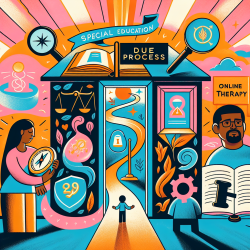The global pandemic has challenged therapists and clients alike, creating a shared experience of uncertainty and vulnerability. In such times, it is crucial to revisit the concept of "good enough" therapy—a framework that encourages therapists to embrace imperfection and uncertainty as part of the therapeutic process. This approach not only helps practitioners maintain their effectiveness but also deepens the therapeutic connection with clients.
Understanding "Good Enough" Therapy
The concept of "good enough" therapy draws inspiration from Donald Winnicott's idea of the "good enough" mother. It suggests that therapists do not need to strive for perfection; instead, they should focus on being present and sensitive to their clients' needs. This approach acknowledges that both therapists and clients are navigating imperfect realities, especially during crises like the COVID-19 pandemic.
The Role of Shared Trauma
Shared trauma occurs when both therapist and client experience a crisis simultaneously. This can blur traditional boundaries and challenge the therapist's sense of efficacy. However, it also presents opportunities for deeper therapeutic intimacy. By acknowledging their own vulnerabilities, therapists can foster a more authentic connection with clients, enhancing the therapeutic process.
The Importance of Self-Disclosure
The research by Panthea Saidipour highlights the potential benefits of therapist self-disclosure during shared crises. While self-disclosure can be risky if not handled carefully, it can also build trust and deepen the therapeutic relationship when done thoughtfully. Therapists must weigh the potential impact on clients and consider how sharing their own experiences might enhance or hinder therapy.
- Building Trust: Sharing personal experiences can humanize therapists and make them more relatable to clients.
- Enhancing Empathy: Clients may feel more understood when they know their therapist shares similar struggles.
- Avoiding Over-Disclosure: It's essential to maintain professional boundaries and focus on what benefits the client.
Navigating Therapist Vulnerability
The pandemic has heightened therapists' vulnerabilities, from health concerns to professional challenges. Embracing these vulnerabilities can lead to personal growth and a more profound understanding of clients' experiences. By modeling resilience and adaptability, therapists can inspire clients to navigate their own challenges with courage.
Cultivating Resilience
Therapists can strengthen their resilience by engaging in self-care practices and seeking support from colleagues. Regular supervision and peer discussions provide valuable perspectives and emotional support, enabling therapists to continue offering effective care even in difficult times.
The Path Forward: Encouraging Further Research
The insights from Saidipour's research underscore the need for ongoing exploration of "good enough" therapy in various contexts. Practitioners are encouraged to engage with current literature, attend webinars, and participate in conferences to stay informed about emerging trends in therapy during crises.
The Precedent of Good Enough Therapy During Unprecedented Times










